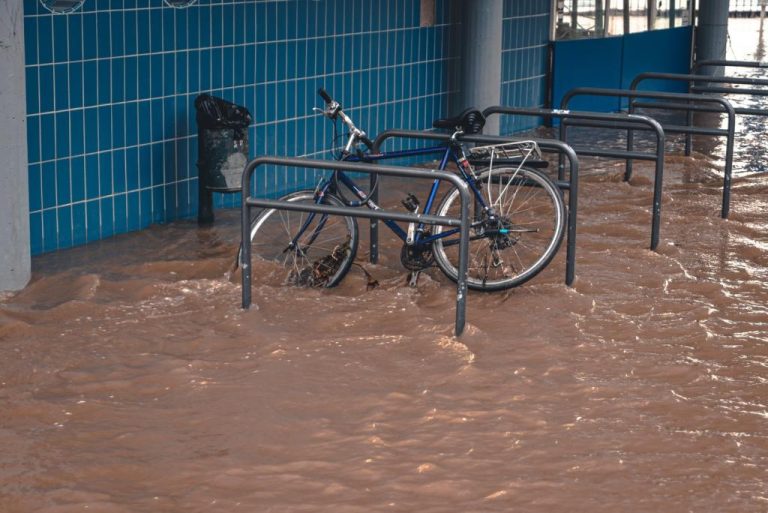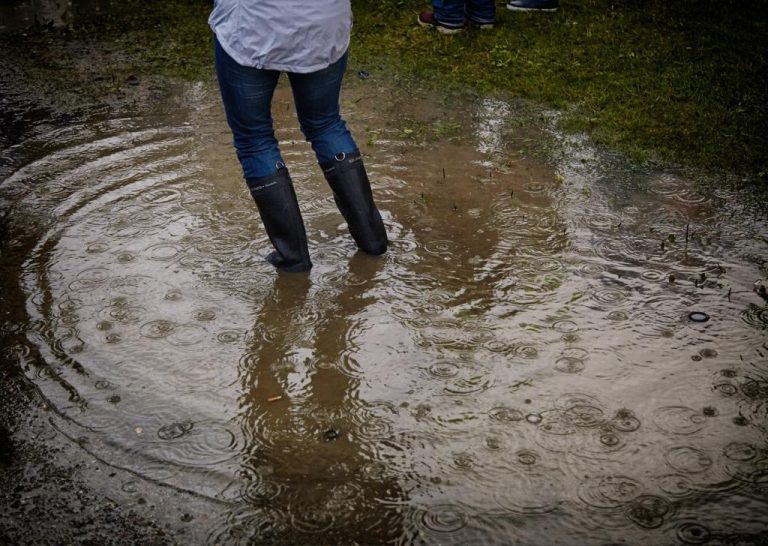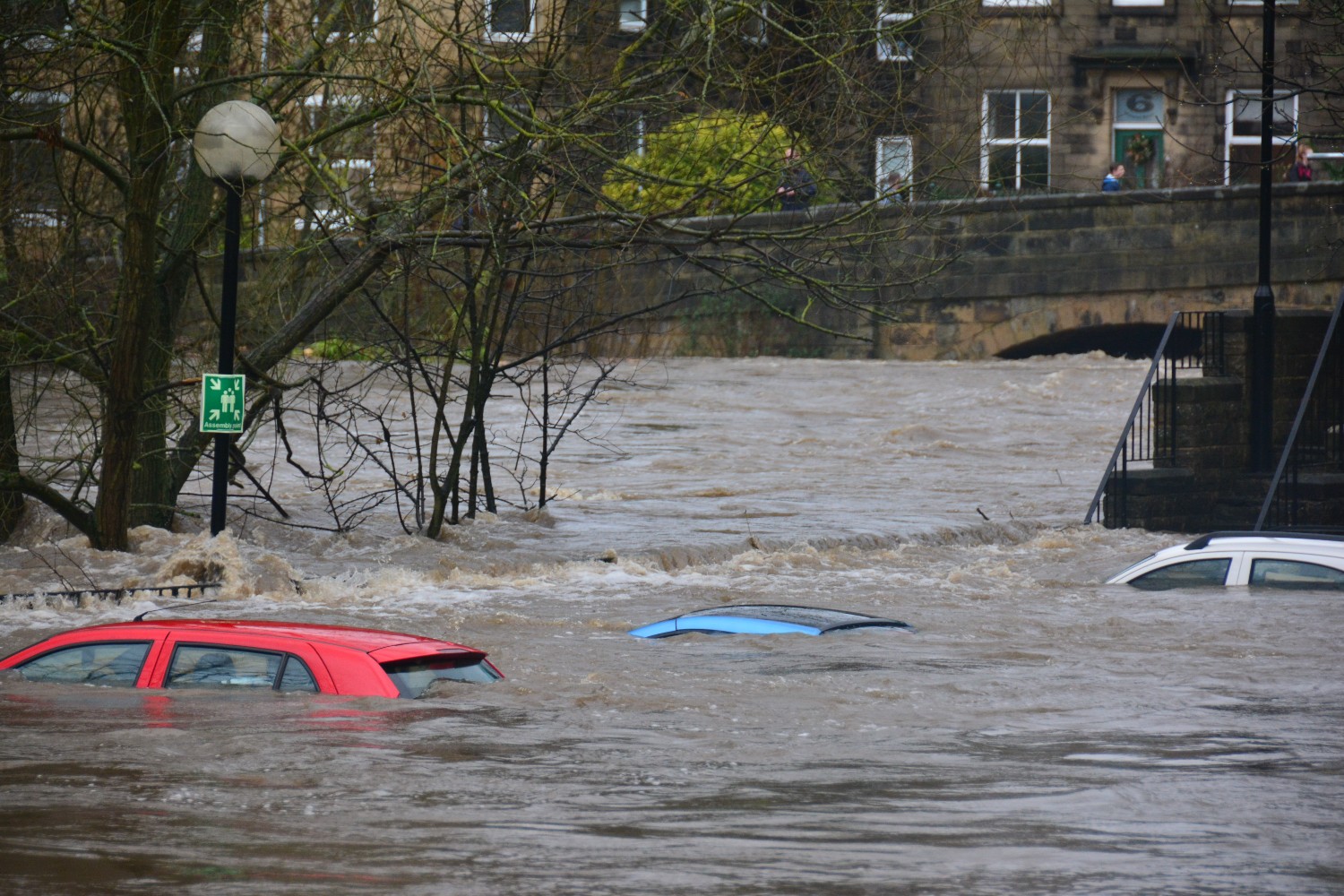Ensure a fair distribution of climate costs, the WRR advises in a report to the Government. TU Delft climate ethic Behnam Taebi thinks ahead on how this can be done.
Flooding in the UK. (Photo: Chris Gallagher / Unsplash)
Investing in renewable energy, constructing dike reinforcement, and compensating flood damage. These are all climate costs that are becoming increasingly important, notes the Dutch Scientific Council for Government Policy (WRR) in its Justice in Climate Policy (Rechtvaardigheid in klimaatbeleid) report. The WRR argues that citizens value a fair distribution of climate costs over the lowest possible CO2 emissions. The distribution of these costs should therefore become an explicit and transparent part of climate policy.
Climate Ethicist Dr Behnam Taebi (Faculty of Technology, Policy & Management) attended the presentation of the report on 16 February. The equitable distribution of climate costs touches his field of climate ethics.


Flooding in Germany. (Photo: Mika Baumeister / Unsplash)
This report discusses distributing climate costs. So far, we hardly talk about this. At most, you hear about flood damage. Should this be explicitly named as climate costs?
“I think that’s what the report is pleading for: that we should name climate costs more explicitly and that we think up front rather than be surprised afterwards.”
What do you mean by up front?
“That we think about what the climate costs are and who bears them before policies are made. If fuel prices go up, which we have seen from the war in Ukraine, it hits some households much harder than others. Moving away from fossil fuels requires substantial investments. And who will bear those costs? You need to think about the distribution of those costs before introducing climate policy. That is what the report argues for.”
So far, the Government and insurance companies are paying for climate damage. Are there any other sources from which climate costs can be compensated?
“Depending on which principle of distribution you use, you could think of the polluter paying more. The report mentions several distribution principles such as per capita, the ability to pay, or who benefits. You can also think of apportionment systems in which the polluter pays. Then it is obvious that a company that emits a lot of CO2 will contribute because the Government will pass the costs on to the polluter.”
That then becomes a kind of CO2 tax?
“A CO2 tax sounds simple but at the same time you have to consider who will bear those costs, and whether everyone can bear those costs? Think of the rising fuel prices in recent months. I clearly remember the example of people who did not dare put on the radiator in winter because of the costs. To me, that is a very painful example. You could think in advance who would be hit the hardest with rising fuel prices. This also led to some kind of compensation from the Government last winter, but the approach was ad hoc. If you compensate everyone by lowering the fuel prices, you haven’t taken distribution into account. But if you support households who need it, you are distributing costs in a different way. The report argues that policymakers should think carefully about where the costs end up and whether this is justified.”
In terms of implementation, do you think the Government can work at such a detailed level that climate costs are distributed fairly? The allowances affair is not very hopeful in that respect. (Thousands of families were forced to repay the advances they had received over the years because of suspicion of fraud, bringing many of them to the brink of bankruptcy.)
“I think the Government should be able to fine-tune its work. I think it should actually do so in the near future. The Government should take the costs of climate action into account and prevent these costs from falling disproportionately on some parts of society.”
When you say that the tax authorities are going to take care of that, it does make some people’s toes curl.
“Obviously, I also think there is a way to go before the Government gains trust, and it has to start working on this. I don’t think the tax authorities are the only Government department that deploys algorithms that improperly select citizens for fraud. I would separate these things. Mistakes were made and they have to be corrected, but the Government should be able to operate at a more detailed level.”
Governments should be able to do that, you mean?
“Governments should indeed be able to do that, and I am confident they can. But the enormous damage caused by the allowances affair needs to be properly repaired first.”
Is there anything you miss in the report?
“The WRR report emphasises national inequality and equity. That point is definitely important, and it definitely deserves attention. But what I miss in the report is a stronger focus on international justice. Many of the choices we make will have international consequences. As far as I am concerned, these should be stated more strongly and included in policy choices.”


(Photo: Vidar Nordli-Mathissen / Unsplash)
Do you have a question or comment about this article?
j.w.wassink@tudelft.nl


Comments are closed.